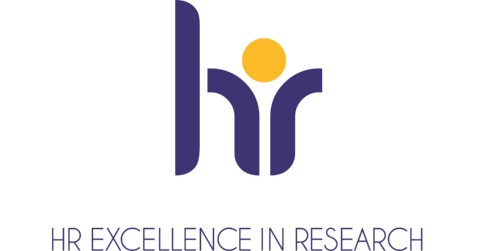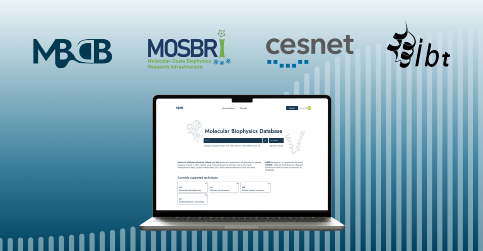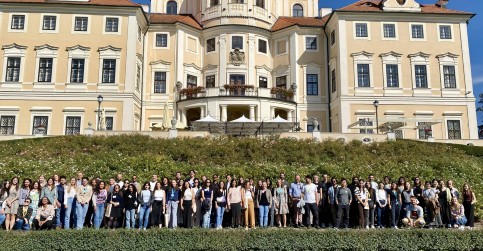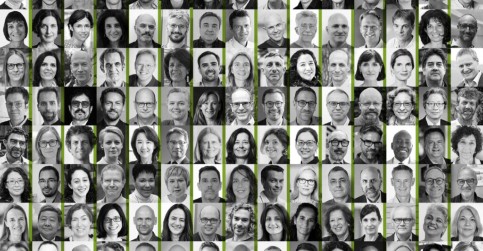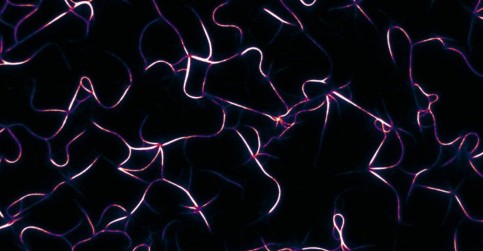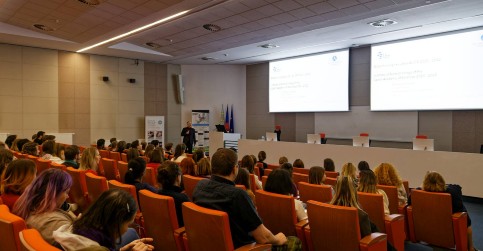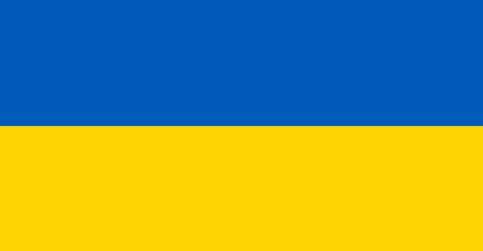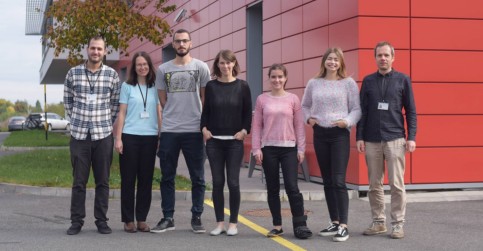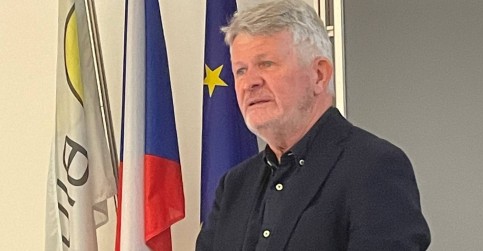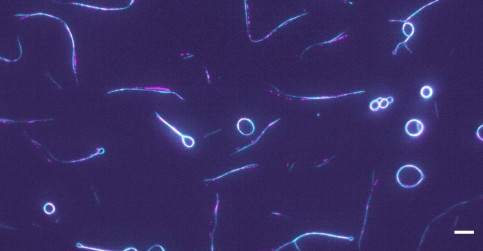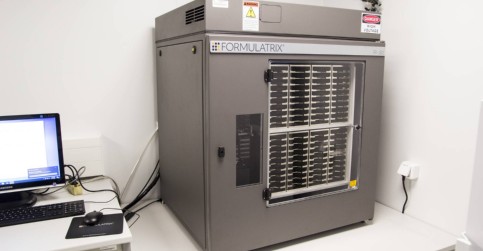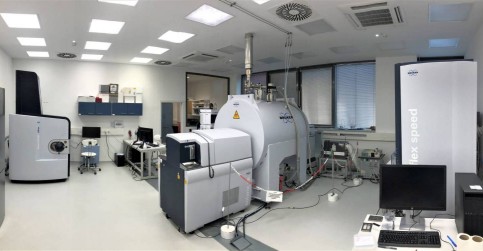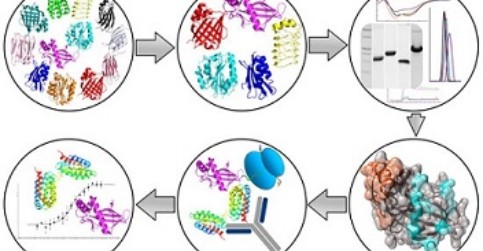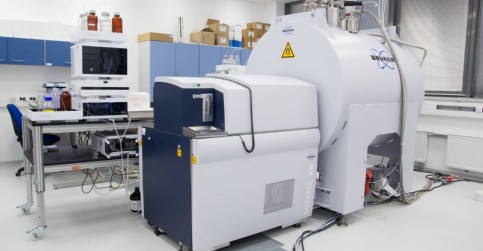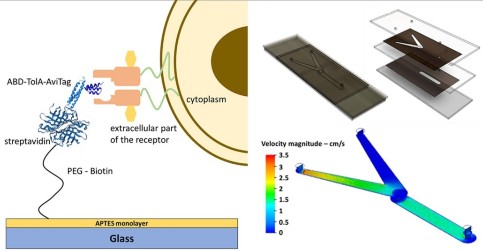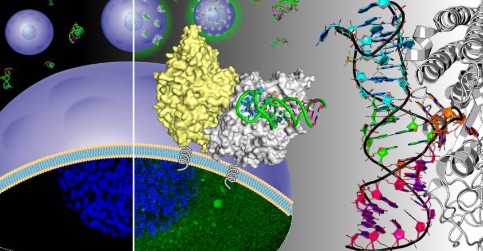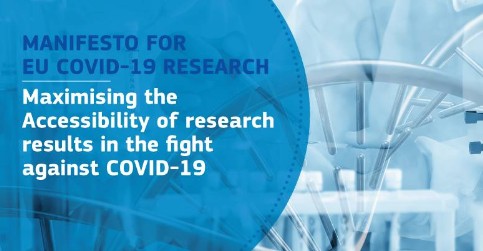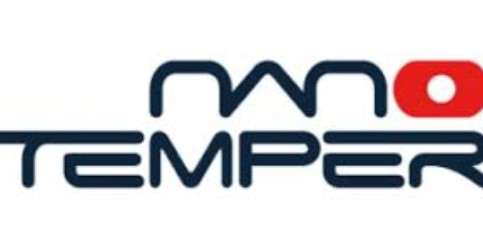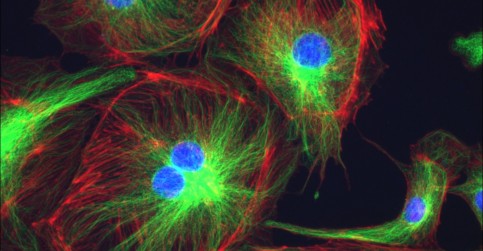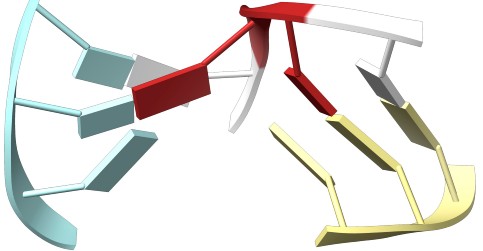The Institute of Biotechnology of the Czech Academy of Sciences (IBT) was awarded the prestigious HR Excellence in Research Award by the European Commission. This award recognizes IBT's commitment to continuously improving working conditions for researchers and maintaining high standards in human resources in research.
News
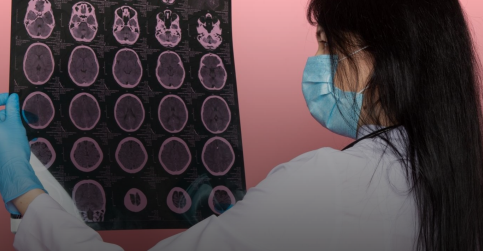
Why do brain cancer cells steal mitochondria?
A collaborative research effort of two institutes of the Czech Academy of Sciences, the Institute of Biotechnology (IBT) and the Institute of Experimental Medicine (IEM), funded by the Czech Science Foundation, led to the discovery of new insights into glioblastoma metabolism. Recently published in Oncogene, the new study shows that horizontal mitochondrial transfer occurs in glioblastoma animal models and explains why brain cancer cells really need mitochondria with functional respiration. ...

XXI Discussions in Structural Molecular Biology and 8th CIISB User Meeting ...
From March 20 to 22, 2025, the historic premises of the Nový Zámek chateau in Nové Hrady hosted the XXI Discussions in Structural Molecular Biology and the 8th User Meeting of the Czech Infrastructure for Integrative Structural Biology (CIISB). The conference welcomed 125 participants, who attended 27 scientific lectures, 9 short talks, and viewed 51 poster presentations
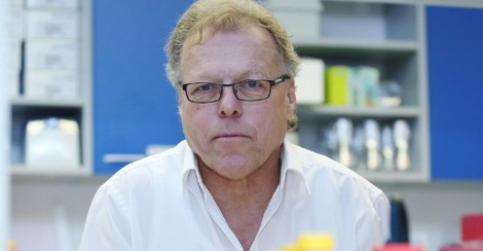
Czech scientists' groundbreaking discovery: horizontal mitochondrial ...
Horizontal mitochondrial transfer is the common denominator of more than 20 types of cancer. A team of scientists led by Professor Jiří Neužil from the Institute of Biotechnology, Academy of Sciences of the Czech Republic, at the BIOCEV Centre has spearheaded a study summarizing the findings of this process in the prestigious journal Cancer Cell. The publication may motivate the development of new approaches in anti-cancer therapy.
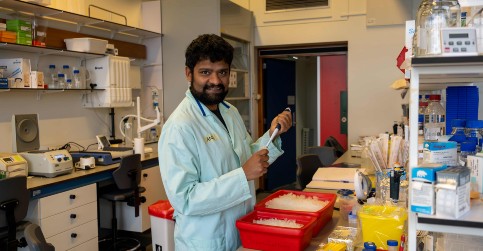
IBT welcomes first international research group leader: A Step Toward ...
In November the Institute of Biotechnology (IBT) is set to open a new laboratory, marking a historic milestone. For the first time, a foreign scientist will lead a research group at the institute, bringing fresh expertise and international collaborations.
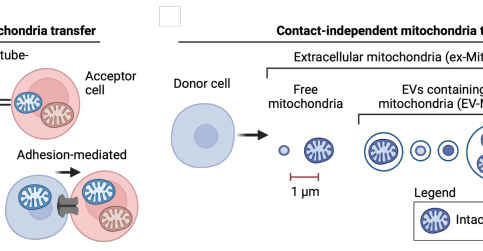
Horizontal mitochondrial transfer: New field of cell biology
Horizontal mitochondrial transfer (HMT) presents a phenomenon where mitochondria move between cells including mitochondrial DNA (mtDNA), in most cases with a functional impact for the cell that obtains mitochondria and, sometimes, also for the cell that loses these organelles. This phenomenon has been uncovered relatively recently, with first reports in the 90s of the last century.
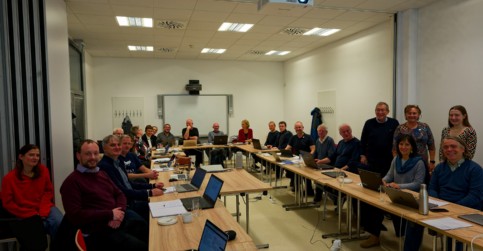
Instruct-ERIC Convenes at BIOCEV to Shape the Future of Structural Biology ...
Vestec, Czech Republic - The Instruct-ERIC research infrastructure gathered on November 21-22 at BIOCEV to discuss the present and future of structural biology. Hosted by the Institute of Biotechnology (IBT), the meeting brought together leading European researchers providing access to cutting-edge technologies and methods in the field to explore the future directions and accents in the European landscape of infrastructures.
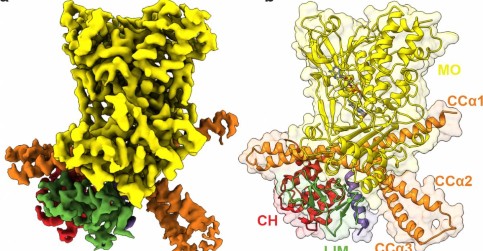
Protein MICAL1 Plays a Key Role in Cellular Dynamics by Controlling the ...
Researchers from the Faculty of Science at Charles University, three institutes of the Czech Academy of Sciences (IMG, IBT and IOCB), BIOCEV and CEITEC have made a remarkable advancement in understanding how cells regulate their inner framework. In a study recently published in Nature Communications, the team has uncovered the precise molecular mechanisms behind the protein MICAL1, which plays a crucial role in maintaining cell shape and movement. ...
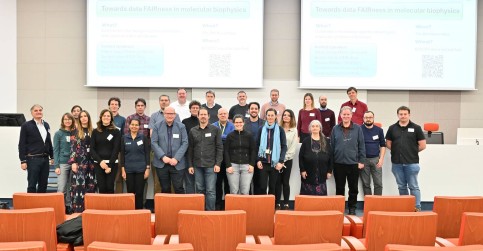
MOSBRI Conference at Biotechnology Institute Tackles Data Management ...
Vestec, Czech Republic — Last week, the Institute of Biotechnology hosted the MOSBRI conference at BIOCEV, where leading researchers, data repository experts, and biophysicsist convened to address critical challenges in the field: effective data management and accessibility. The two-day event, held on November 7th and 8th, fostered discussions on advancements in interoperability and integrative approaches to data sharing and analysis.
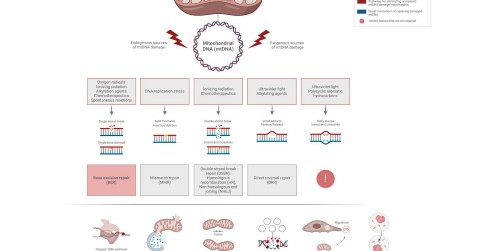
Mitochondrial DNA and its damage and repair in cancer
Teams of researchers from the Institute of Biotechnology led by prof. Jiri Neuzil and the Institute of Experimental Medicine led by dr. Pavel Vodicka and dr. Sona Vodenkova recently published a review paper in the highly acclaimed journal Trends in Cancer, focusing under the title of Mitochondrial DNAdamage, repair and replacement.
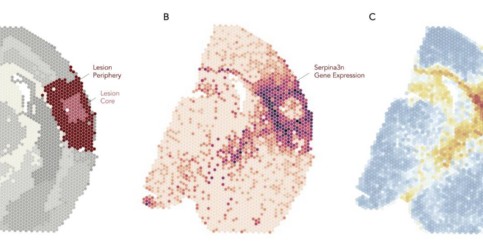
Groundbreaking study maps brain’s recovery process after stroke using ...
A team of scientists from the Institute of Biotechnology of the Czech Academy of Sciences (IBT CAS) and the Institute of Experimental Medicine of the Czech Academy of Sciences (IEM CAS), supported by colleagues at the Institute for Clinical and Experimental Medicine (IKEM), has made significant strides in understanding how the brain recovers after a stroke. ...
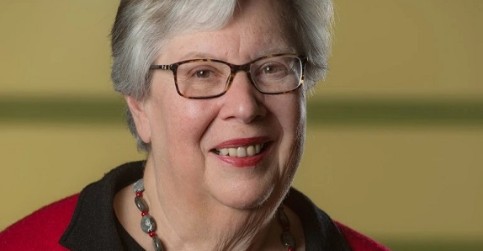
From Data Quality to Nobel Discovery: How Validated Science Data Transform ...
In a recognition of computational biology's power, this year's Nobel Prize in Physics celebrates the breakthrough solution to one of science's most persistent challenges: the protein folding problem. This achievement, made possible through the innovative combination of bioinformatics and artificial intelligence, demonstrates how validated, machine-readable data drives modern scientific discovery.
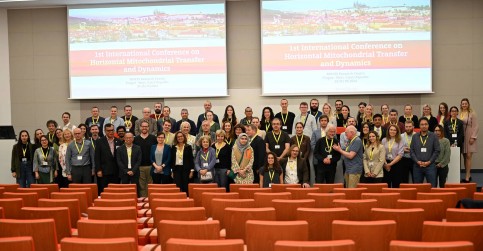
First International Conference on Horizontal Mitochondrial Transfer and Dynamics
On October 24 and 25, 2024, the First International Conference on Horizontal Mitochondrial Transfer and Dynamics (HMTD) took place at the BIOCEV center in Prague. The main organizer was Prof. Jiří Neužil, head of the Laboratory of Molecular Therapy at the Institute of Biotechnology.
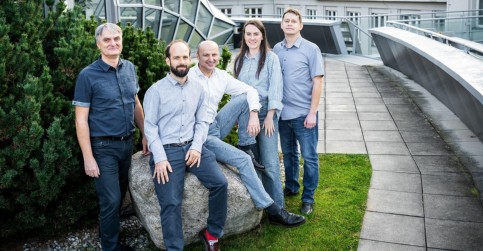
Scientists describe how bacteria evade the effects of antibiotics
One of the main challenges of contemporary medicine is posed by the resistance of pathogens to antibiotics. An important step in countering it has now been made by researchers from IOCB Prague, in collaboration with colleagues from the Institute of Microbiology and the Institute of Biotechnology of the Czech Academy of Sciences. ...
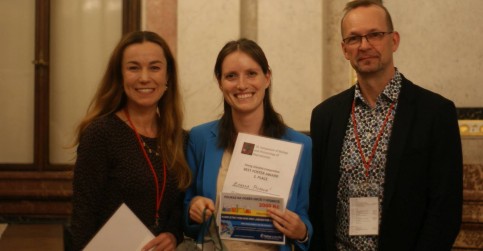
SBIR 2024: Fostering Collaboration in Reproductive Biology and Immunology
From October 13 to 15, 2024, the picturesque Chateau Liblice hosted the 29th edition of the Symposium of Biology and Immunology of Reproduction (SBIR). This long-standing conference brought together 62 participants, primarily from the Czech Republic and Slovakia, to discuss the latest advancements in reproductive biology, assisted reproduction, and immunology.
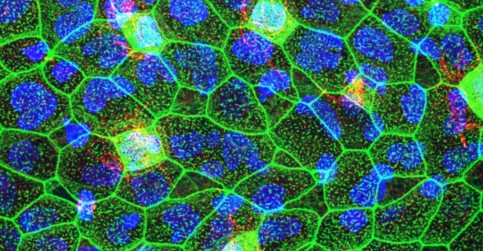
Newly Discovered Regenerative Cells May Revolutionize Wound Healing
Researchers from the Institute of Biotechnology of the Academy of Sciences of the Czech Republic, along with the 1st Faculty of Medicine of Charles University and the National Institute for Cancer Research at the BIOCEV center, have made a groundbreaking discovery regarding regenerative cells that could significantly enhance wound healing processes. Their findings suggest that wounds can heal without scarring, contingent upon the presence of Regeneration Initiation Cells (RICs).
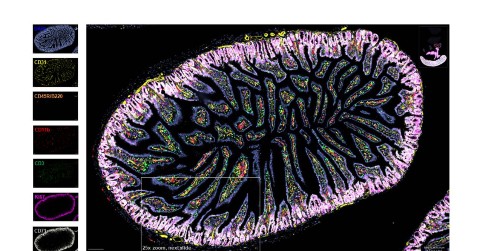
New opportunities for studying spatial proteomics
A prerequisite for cutting-edge competitive research is presented by high-end technology. In this context, Laboratory of molecular therapy (IBT CAS/BIOCEV) have established a new instrument from Akoya Biosciences, Phenocycler, that allows to study spatial proteomics in biological samples.
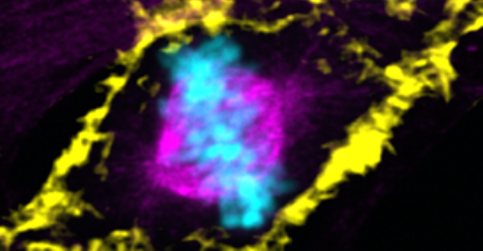
Czech-German collaboration revealed breakthrough observations in division ...
International research team led by Libor Macurek (Institute of Molecular Genetics, Czech Academy of Sciences), Robert Grosse (Institute for Clinical and Experimental Pharmacology and Toxicology, University of Freiburg) and Zdenek Lansky (Institute of Biotechnology, Czech Academy of Sciences) identified a new mechanism of the crosstalk between microtubules and actin cytoskeleton during cell division. ...
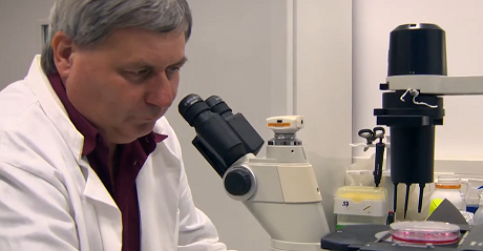
Myomedin MBA proteins aid in the diagnosis of patients with non-small cell ...
Research team of the Laboratory of Ligand Engineering with its collaborators from Palacky University Olomouc (UPOL) has recently reported on engineering of small PD-1 binding proteins named Myomedins MBA that benefit diagnosis of non-small cell lung carcinoma (NSCLC) patients in vitro and monitoring PD-1 positive cell populations in vivo using positron emission tomography (PET/CT).
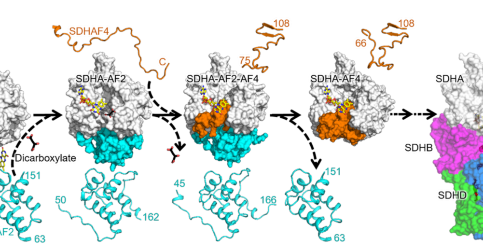
New results concerning a key complex regulating the Krebs cycle and ...
Mitochondria harbour two important pathways: the Krebs cycle and oxidative phosphorylation (OXPHOS). While Krebs cycle is a hub of catabolic and anabolic pathways essential for proper physiology and function of a cells, OXPHOS is the major source of cellular energy in the for of ATP. Thus, the two pathways are under strict control. They are connected with each other by mitochondrial respiratory complex II (CII), also referred to as succinate de-hydrogenase (SDH). ...
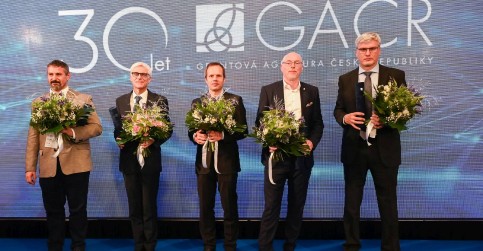
Jakub Rohlena received he Czech Science Foundation President’s Award
The President of the Czech Science Foundation (GACR) together with the Minister for Science, Research and Innovation awarded the five best scientific projects at the 20th anniversary ceremony of the Czech Science Foundation President's Awards yesterday (12 October 2023) at the Martinský Palace. The award recipients from all areas of basic research have contributed to a significant expansion of knowledge in the field and will lead to further applications.
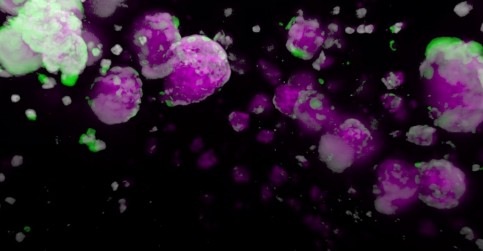
Scientists discover the function of NEUROD1 protein in the development of ...
Scientists from the Institute of Biotechnology (BTU) of the CAS at the Biotechnology and Biomedicine Centre of the Czech Academy of Sciences and Charles University (BIOCEV) and the Institute of Clinical and Experimental Medicine (IKEM) have elucidated the crucial role of the NEUROD1 protein in the development of severe diabetes. MODY6 diabetes is a subtype of diabetes caused by a mutation in the neurogenic differentiation factor 1 (NEUROD1) gene. ...
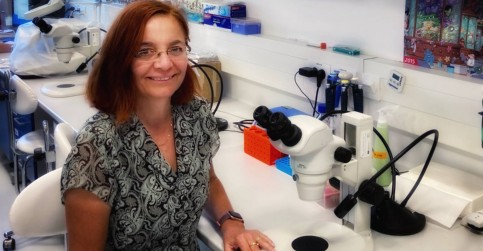
Gabriela Pavlínková received the Honorary Recognition of the President of ...
For the excellent results of the project "The role of NEUROD1 and ISL1 in the development of inner ear neurons" Gabriela Pavlínková received an honorary recognition from the President of the Grant Agency of the Czech Republic (GAČR) last week.
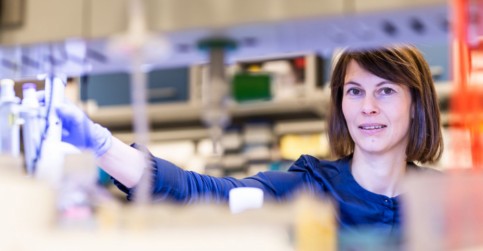
Researching the way cancer cells communicate brings hope for new treatment
Cancer cells need an immense amount of building material to proliferate. When they run out, they are able to persuade healthy nearby cells to supply them. How they do so is the subject of research done by Kateřina Rohlenová from the Institute of Biotechnology of the CAS: “We already know quite well what happens on the inside of cancer cells. We now want to map what happens in their surroundings. ...
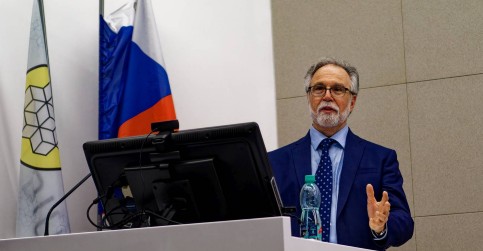
Visit of Nobel Prize winner Professor Gregg L. Semenza
During his stay in the Czech Republic, Nobel Prize winner in Physiology and Medicine Professor Gregg L. Semenza visited IBT at the BIOCEV center. It was the first visit of a Nobel Prize winner in the history of the center and his lecture on "Hypoxia-inducible factors in Physiology and medicine" filled the conference hall to the last seat.
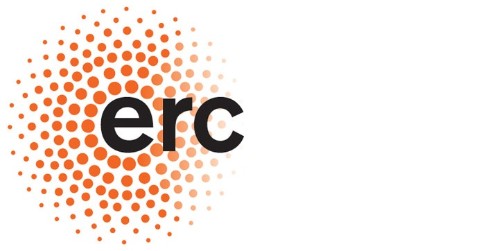
An international team with a Czech scientist will cast light on the secret ...
The most prestigious scientific grant awarded by the European Research Council, the ERC Synergy Grant, goes to the team of Zdenek Lánský from the Institute of Biotechnology of the Czech Academy of Sciences in the BIOCEV center. With French and American colleagues, he will investigate the function of a protein called tubulin, which is significantly involved in the transport of substances inside cells. ...
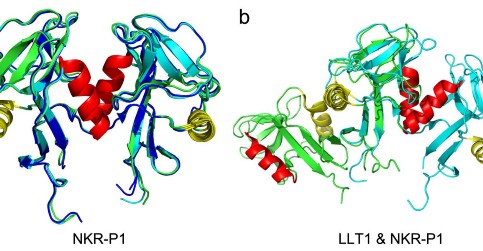
Functional clustering of surface receptors of human immune cells
A new study focused on the structure and function of natural killer cell surface receptors was recently published in the prestigious journal Nature Communications. The study comes from the research teams of Dr. Ondřej Vaněk from the Department of Biochemistry, Faculty of Science, Charles University, and Dr. Jan Dohnálek from the Institute of Biotechnology of the Czech Academy of Sciences.
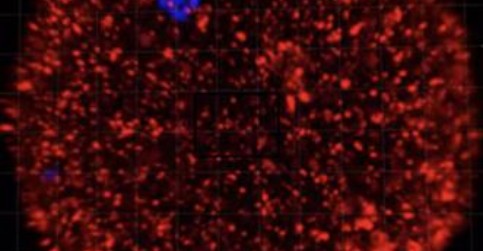
Protein named after the mythological goddess Maia plays a key role in the ...
A new protein that plays a key role during sperm-egg adhesion and fusion has been discovered by an international team led by Kateřina Komrsková from the Institute of Biotechnology of the Czech Academy of Sciences at the BIOCEV Centre and the Faculty of Science of Charles University in Prague. The researchers also developed special cell cultures for the “production” of human oocyte proteins. ...
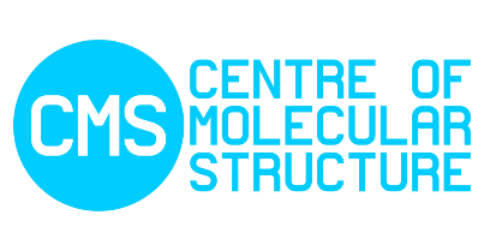
Bio-SAXS practical course 2022
Small angle X-ray scattering is a powerful method for in solution characterization of macromolecular structures. The course will provide practical experience with the data collection and processing. The data processing will focus on usage of ATSAS software package. Participants are encouraged to bring their own laptops. Application: Please, apply at the following link: HERE The number of participants is limited. ...
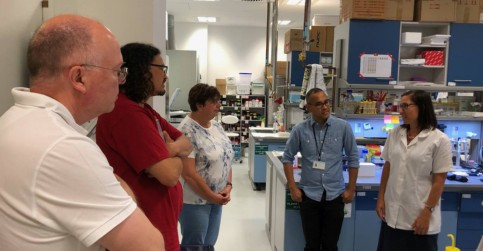
Members of the Scientific Advisory Board of the IBT met to evaluate the ...
The aim of the two-day meeting held on June 2-3 was to evaluate the research results and plans for further activities of six research laboratories, i.e. half of the Institute of Biotechnology operating in the BIOCEV center. Members of the Scientific Advisory Board of the Institute of Biotechnology of the CAS (SAB) and two external members of the IBT Board met for this purpose for the first time since the establishment of the SAB in 2021.
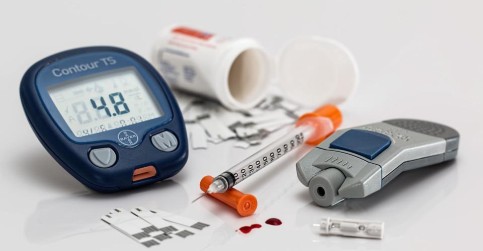
Czech anticancer agent works on type 2 diabetes
A team of scientists and physicians from the Institute of Biotechnology of the CAS at the BIOCEV centre and the Institute of Clinical and Experimental Medicine in Prague has demonstrated a positive effect of MitoTam on type 2 diabetes. The research was published in the prestigious journal Nature Communications.
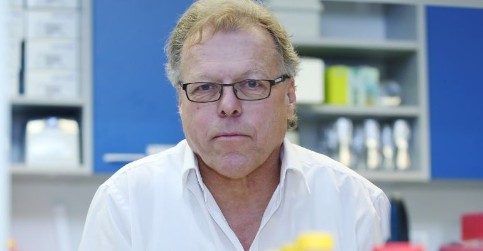
New strategy for renal cancer therapy
A research team led by Professor Jiří Neužil from the Institute of Biotechnology of the Academy of Sciences of the Czech Republic at the BIOCEV center described the effect of the Czech anti-cancer substance MitoTam in combination with immunotherapy on kidney tumors.
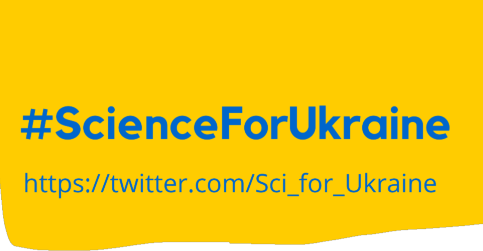
The European platform of job vacancies for Ukrainian researchers
#ScienceForUkraine is a community group of volunteer students and research scientists from academic institutions in Europe and around the world. Its mission is to collect and disseminate information about support opportunities at the university, national, and international level for graduate students and researchers directly affiliated to an academic institution in Ukraine. ...
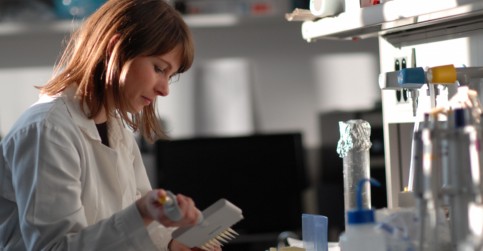
Kateřina Rohlenová received EMBO Installation Grant
This year, six group leaders have received EMBO Installation Grants. One of them, and the only recipient in the Czech Republic, is Kateřina Rohlenová from the Institute of Biotechnology AS CR in the BIOCEV centre, who is also a recent holder of a prestigious ERC grant.
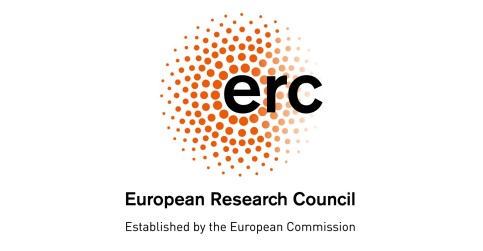
The head of the youngest research group from IBT at the BIOCEV centre has ...
Mgr. Katerina Rohlenova, Ph.D. from the Institute of Biotechnology of the Czech Academy of Sciences at the BIOCEV Centre has been awarded the most prestigious European scientific grant by the European Research Council (ERC). She will receive EUR 1.5 million (approximately CZK 38 million) over five years for her innovative research into metabolic communication in tumours.
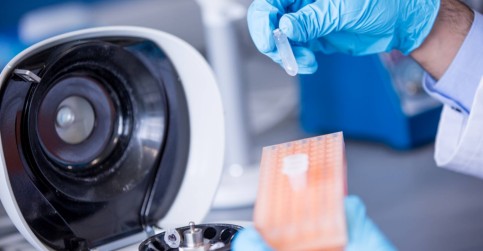
COVID-19 testing at BIOCEV for employees only
Testing of samples for the presence of SARS-CoV-2 virus by PCR in the BIOCEV centre is available only for employees of the Czech Academy of Sciences and Charles University who work at the Biotechnology and Biomedicine Centre in Vestec. Interested members of the public, companies and other institutions can use testing centres in the vicinity of BIOCEV and Prague.
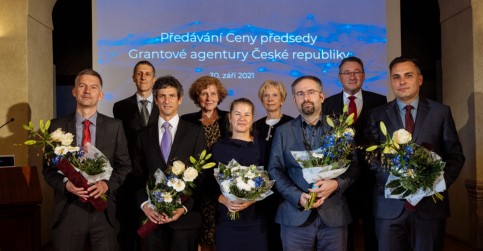
Zdeněk Lánský received the Czech Science Foundation President’s Award for ...
Excellent scientists have received the Award of the President of the Czech Science Foundation (GACR) for outstanding results in grant projects, which was exceptionally presented this year by GACR Vice President Stanislava Hronová. The prestigious prize for the best basic research was awarded to Zdeněk Lánský (Institute of Biotechnology of the Czech Academy of Sciences)
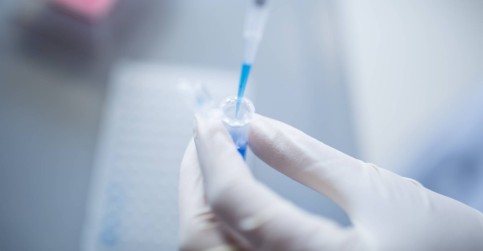
License for new precision test for antibodies protecting against coronavirus
The Institute of Biotechnology (IBT) and the Institute of Organic Chemistry and Biochemistry (IOCB Prague), both part of the Czech Academy of Sciences, have signed a licensing agreement with the company Immunotech, a subsidiary of Beckman Coulter, for the manufacture and distribution of a newly developed coronavirus antibody IVD test. ...
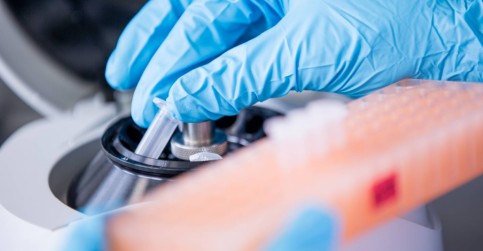
Pathogenic variation in the SUCLG2 gene increases the risk of rare ...
A new study from the Institute of Biotechnology’s Molecular Therapeutics Laboratory led by Prof. Jiří Neužil in collaboration with Prof. Karel Pacák’s group from the National Institute of Health (Bethesda, MD, USA), which led to the discovery of eight SUCLG2 gene variants in patients with neuroendocrine tumours, puts SUCLG2 on the list of genes whose pathogenic germline variations may increase the risk of cancer development due to misregulation of cellular metabolism. ...
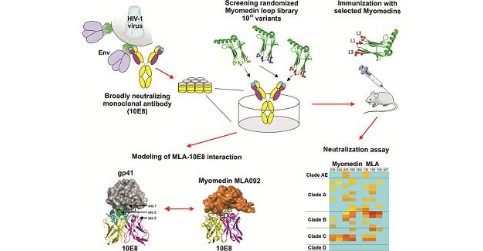
Myomedins as immunogens elicit HIV-1 neutralizing antibodies
Recently we have proposed “Non-cognate Ligand Strategy (NCLS) as a promising approach for the development of scaffold-derived epitope-mimicking proteins as vaccine immunogens. To support this approach, we developed a set of proteins called Myomedins that stimulated production of HIV-1 neutralizing antibodies in immunized mice. These variants mimic gp41/Env epitope recognized by broadly neutralizing antibody 10E8 and have potential to serve as HIV-1 vaccine components. ...
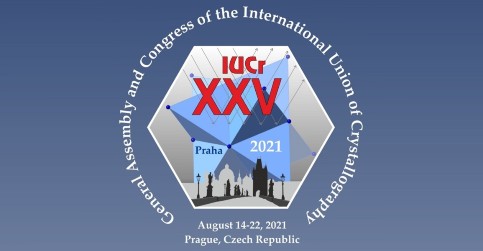
25th Congress of the International Union of Crystallography
The congress principal topics are Biological and macromolecular crystallography; Physics and fundamental crystallography; Materials and minerals; Chemical crystallography, crystal structures; Methods and instruments; Theory, computation, modelling, data, standards.
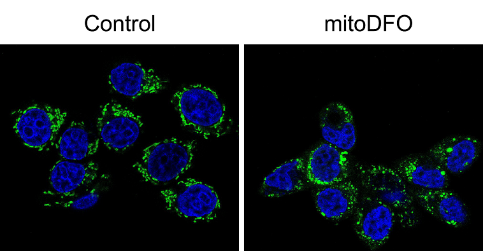
Targeting mitochondrial iron metabolism as a new anti-cancer strategy
The team of the Laboratory of Tumour Resistance and Service technology laboratory (both Institute of Biotechnology, Czech Academy of Sciences (IBT, CAS) has developed a novel anti-cancer drug that interferes with mitochondrial iron metabolism. ...
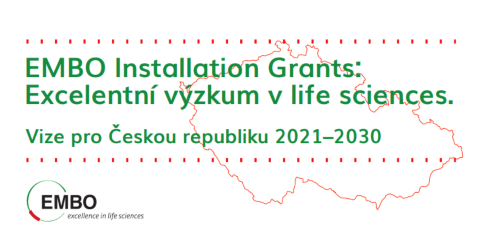
Researchers Led by CEITEC Are Asking the Minister of Education for Support ...
Read an Open letter to the Minister of Education, Youth and Sports, a kind request for support of EMBO grants for the Czech Republic in the form of increasing the number of awarded EMBO installation grants to two to three newly supported grants per year and securing funds for their implementation from the state budget.
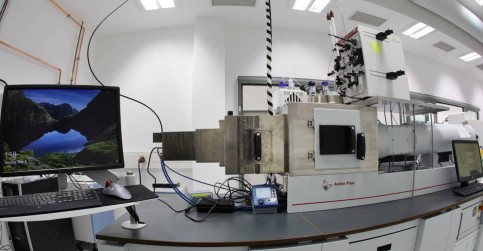
CMS Newsletter March 2021
The Centre of Molecular Structure introduces its newsletter with updates on its core facilities: new instruments, upgrades of current instruments, or the brand new Protein Production facility. You will find details in attachment. You can realize your projects at CMS via an online application at ciisb.org/open-access/proposal-submission Find out more information at ciisb.org, ibt.cas.cz/core-facility/CMS/ or contact magdalena.schneiderova@ibt.cas.cz, jan.dohnalek@ibt.cas. ...

COVID-19 testing for businesses
The Institute of Biotechnology of the Czech Academy of Sciences, together with the Faculty of Science, Charles University, offers regular COVID-19 testing for businesses. The test analyses a saliva sample using the PCR technology (testing for the direct presence of a virus’s genetic code in a sample) using certified test kits supplied by the Czech company DIANA Biotechnologies s.r.o. It is the most reliable method that does not require an unpleasant nasopharyngeal swab. ...
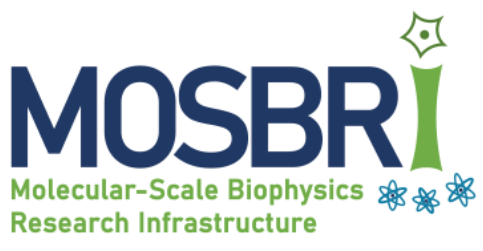
Centre of Molecular Structure of the IBT will be part of the new European ...
The European Union’s Horizon 2020 INFRAIA programme has awarded a 5 M€ infrastructure grant to MOSBRI (Molecular-Scale Biophysics Research Infrastructure www.mosbri.eu), a consortium of 13 academic centres of excellence and 2 industrial partners from 11 different European countries, coordinated by Institut Pasteur (Paris, France).
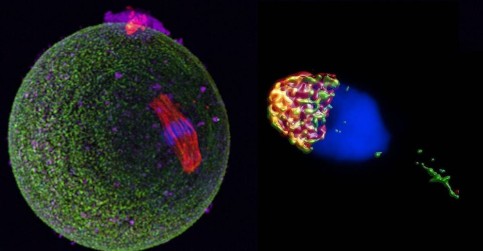
Research on the CD46 protein moves assisted reproduction towards the ...
The research team of Dr. Kateřina Komrsková from the Institute of Biotechnology of the Academy of Sciences of the Czech Republic at the BIOCEV centre, which studies causes of infertility, has filed two international patents that are of key importance for the advancement of assisted reproduction. The first patent documents how to determine sperm quality with extreme accuracy. ...
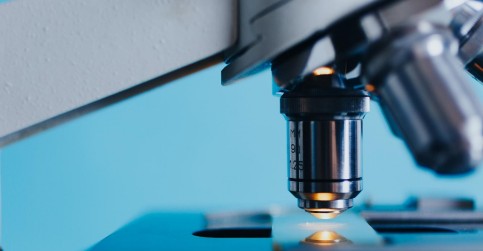
Researchers from IBT and IEM CAS have received the prestigious EXPRO 2021 grant
At the end of last year, the Czech Science Foundation (GAČR) completed an evaluation of project proposals accepted for public tender in research, experimental development and innovation to support basic research grant projects.
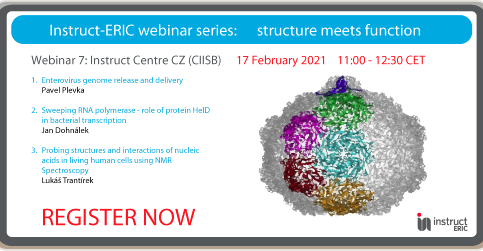
Instruct-ERIC ‘Structure Meets Function’ webinar - register now
Featuring expert speakers from Instruct Centres across Europe, the Instruct-ERIC webinar series, Structure Meets Function, highlights some of the latest developments in structural biology, demonstrating how integrative methods are enabling scientists to decipher the mechanisms that underpin health and disease.
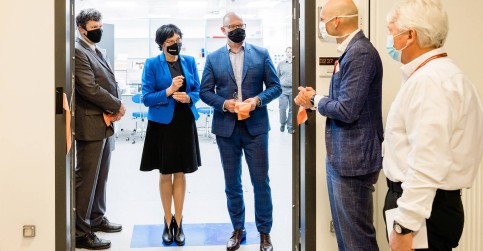
ELIBIO Laboratory Opening
The Biological Laboratory of the ELIBIO project at ELI Beamlines was officially opened 20th of January 2021 by Robert Plaga the Minister of Education, Youth and Sports, Eva Zažímalová the President of the Czech Academy of Sciences and Michael Prouza Director of the Insitute of Physics of the Czech Academy of Sciences.
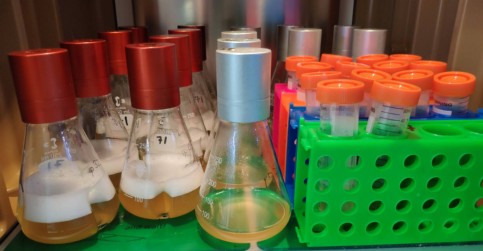
Online applications of new research projects into CMS newest facility ...
The Centre of Molecular Structure has launched online applications of new research projects into its newest facility Protein Production. If you wish to use the services of Protein Production or any of our other facilities, submit your application via the CIISB online form.
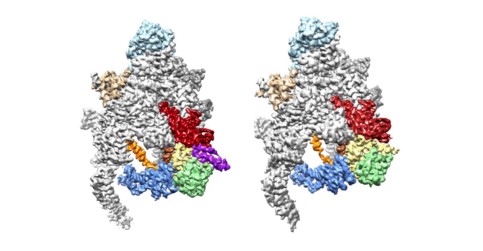
New possibilities in fight against pathogenic bacteria
Three international research teams succeded in elucidation of a unique molecular mechanism, which enables bacteria, including pathogens, to maintain the flow of genetic information from DNA to RNA. The discovery leads to new possibilities of development of the much needed antimicrobials against serious pathogens, including the causative agent of tuberculosis. Their discoveries have been published in the journal Nature Communications.
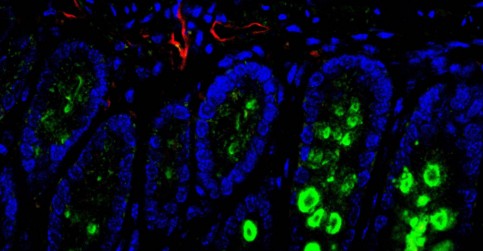
The new laboratory of IBT CAS will focus on the metabolism of healthy ...
In October 2020 a new research group started at the Institute of Biotechnology (IBT) of the Czech Academy of Sciences located at the BIOCEV center. Head of the group, Dr. Katerina Rohlenova, returned to the Czech Republic after a postdoctoral stay in the laboratory of Prof. Peter Carmeliet at the Center for Cancer Biology (VIB-KU Leuven) in Belgium, where she studied metabolism of cells that form blood vessels in tumors. At IBT Katerina teamed-up with Dr. ...
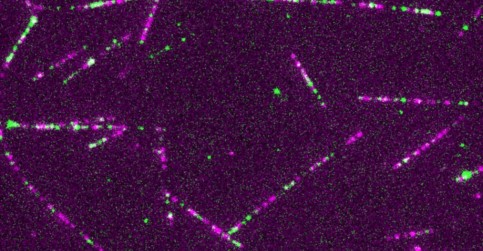
Mitochondria move smoothly through crowded environment
An international team led by researchers from the Institute of Biotechnology of the Czech Academy of Sciences describes a mechanism underlying transport of organelles within cells. The work shows how long-range transport can efficiently work in crowded cellular environments.
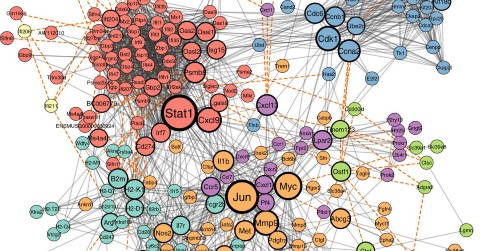
Age-dependent response to stroke characterized in mouse model
Cerebral stroke is one of the leading causes of death and long-term disability worldwide. It affects primarily the elderly population and is typically recognized as a disease associated with aging. However, it remains unknown how such an age-dependent vulnerability develops, and what are the underlying mechanisms. ...
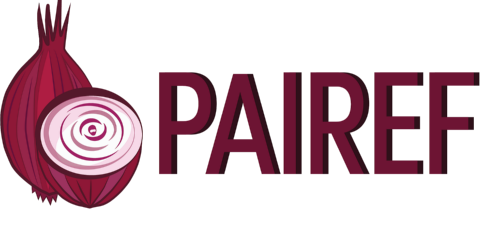
Data analysis with program PAIREF leads to more accurate structures of ...
Diffraction methods are capable to determine 3D atomic structures of biomolecules (e.g. proteins and DNA), essential for the design of drugs and biotechnological applications, etc. A new tool PAIREF, developed at CTU in close collaboration with IBT, provides a comprehensive analysis of experimental data resolution that leads to an optimal accuracy of the structures.
